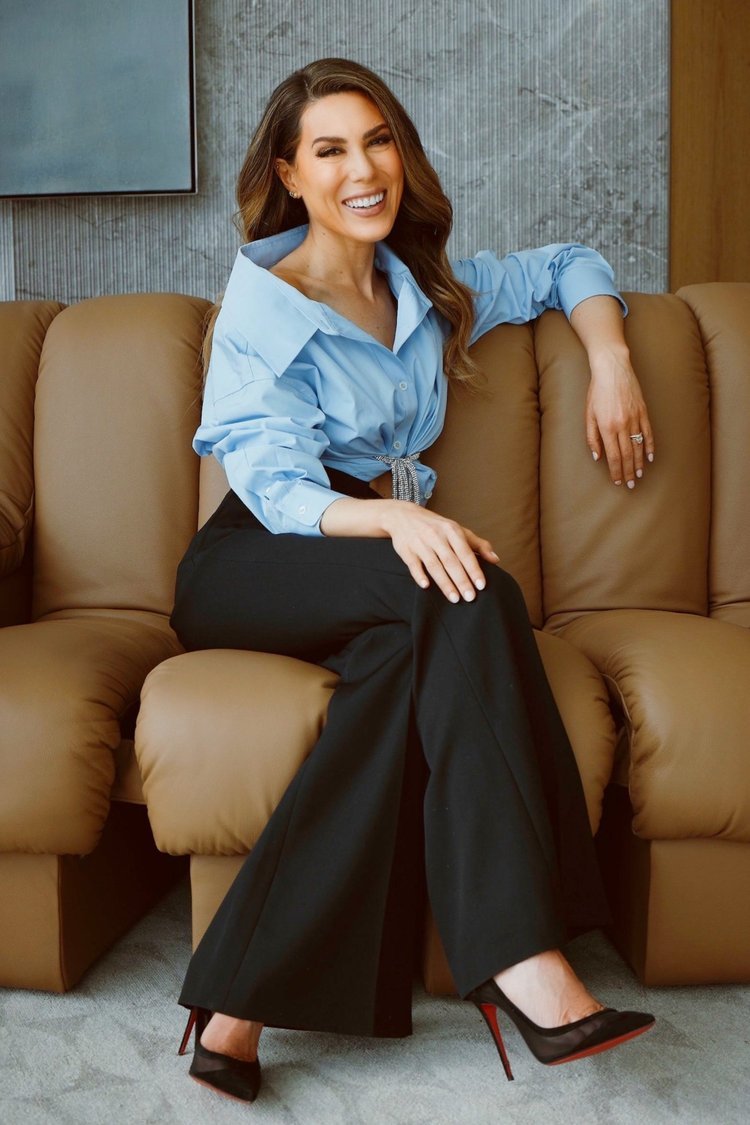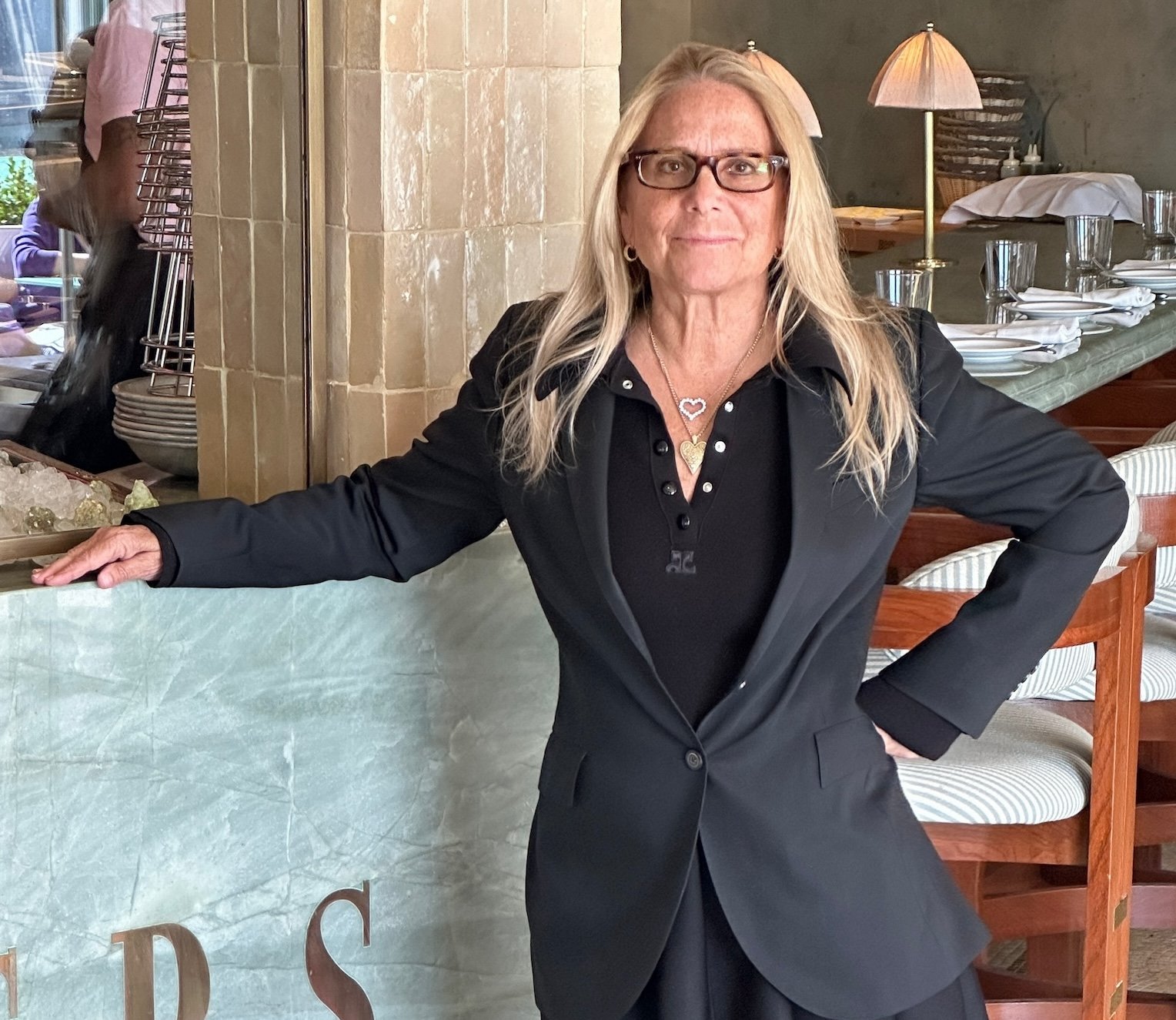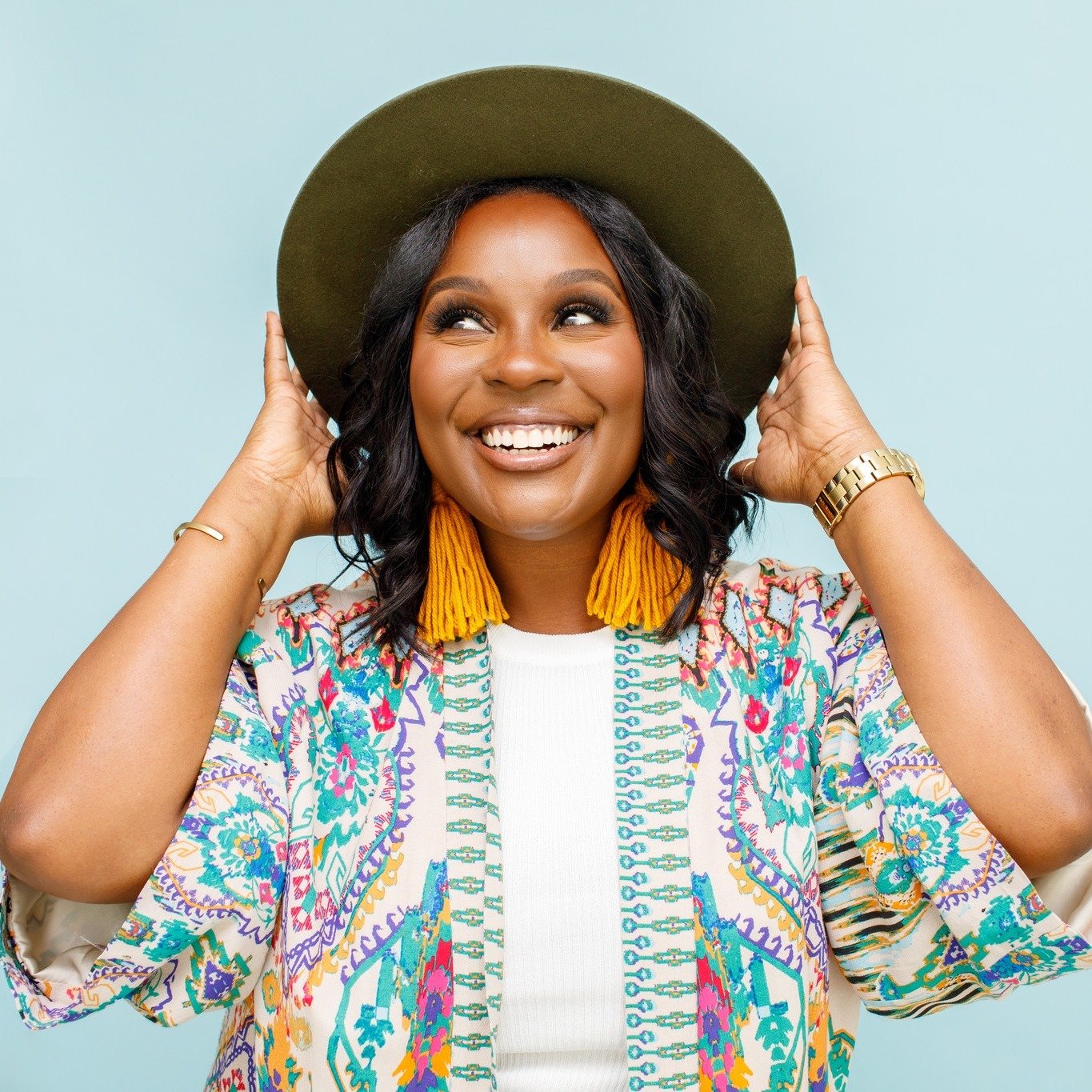It's a Good Reminder: It's Never Too Late—and Jen Gottlieb Proves to Us Why
written by Stacey Lindsay
As both a public-facing entrepreneur and an innately curious human, Jen Gottlieb has been thinking deeply about being seen over the last several years. This is not only because Jen came out with her first book, Be Seen, this fall. It’s also because the actress-turned-speaker-and-founder has intimately wrestled with fully revealing her real self—her true, unabashed, authentic, spotlit self—to the world.
Now, if you know Jen and her work, the idea of her resisting fully being seen sounds ludicrous. Jen emits Technicolor beams when she speaks onstage and even brighter rays when she’s directly across from you. (Every conversation I’ve had with this woman has left me feeling like I can trek Everest and back in a day.) Still, she admits she’d kept herself contained for a long time to appease others. In Be Seen, she interrogates this truth, showing the world the walls she busted through while offering us all a map for stepping away from the shadows and into the spotlight of our lives.
“Once Real Jen started driving the bus instead of the version of me I thought I was supposed to be,” she writes, “it became a lot easier to get clear on the life I really wanted to create, connect with the community of people that could help me get there, and speak directly to the audience I was meant to serve.”
Her words are a beacon—and her story proves that we can grab our realness with both hands, no matter our age, where we are, what we want, or where we’re going.
Chatting with Jen Gottlieb
You call your authentic self "Real Jen"—the woman you truly are rather than a version of yourself that exists to appease others. So many of us can relate to keeping ourselves boxed in. So tell us, how do you know you’re with 'Real Jen' again?
I can tell you that I get a feeling when I tap into real me—into Real Jen—because I was so disconnected from her for so long. I didn't know who she was for so long, but when I found her again, I felt an emotional connection—an actual physical reaction.
At the beginning of the book, I talk about setting the "s-e-e-n" where I use tools that I learned as an actress to tap into my senses and visualize a moment in my life where I felt the most me. When I think of 'Real Jen' and when I was most in-flow and enjoying my whole life, I think back to dancing in my living room with my dad to The Little Mermaid and Annie. Play one of those songs right now, and I'll cry because I'll feel the joy I felt as that little girl. I always think of that as 'Real Jen' because when I go back to that moment, I remember that nothing mattered. I could shine so bright. I was flipping, singing, dancing, and letting my belly hang out, and my hair was a mess. I wasn't worried about somebody judging my voice. I was belting it out. That's me without society coming in and saying, 'You should look this way for people to like you,' or 'You should act this way for people to like you.' I was just who I was.
When I go back to that time, listen to those songs and visualize myself back in that body and as that little girl, I get emotional. And that's how I know Real Jen again. So, whenever I lose her along the way now, I will literally just put on 'Under the Sea' or another song I used to dance to during that time, and it will tap me back in. I'll see that's who I am. And I'll think, Let's go into this experience with that little girl leading the way.
It's wild to hear this from you because you've lived a very public and successful life, from building a career as an actress to becoming an entrepreneur and motivational speaker and founding a global company. Still, you have needed to work on being fully seen. How did you know you wanted to stretch yourself?
I was stuck. I was completely stuck. I was feeling like I had lost momentum. I got to this level, and it felt good, but it didn't feel great. I knew that something was missing. I knew there was more. I couldn't put my finger on it exactly; I didn't know what it was. This had been going through my mind for a couple of months. I wasn't speaking at the time, and I wasn't really creating. I was posting filtered photos with perfect captions. And I thought I was quote-on-quote being seen and I was showing people how it's done. And I was making connections and having a good life. But I just knew there was more.
You write about a specific moment revealing itself. You were walking with your husband Chris in New York when you stumbled into a tiny crystal shop owned by a psychic who told you something profound.
She kept saying to me, "be seen be seen be seen." Of course, in the book, I write how I thought: This is wrong. I'm so seen! But that night, after seeing her and hearing that, I couldn't sleep. I realized I had subconsciously put this wall up for protection. I was protecting myself. I was letting myself be seen just enough to do what made me look like I was doing a really good job and making everything run. It was just enough. I know many women are also doing it all with just enough. I see them. And I know that there's more for them. We have that guard up, and the reason we're doing just enough is because it's scary and vulnerable to really showcase who we really are. Because if we showcase who we really are without the whole show we put on to keep us safe, that is a very vulnerable place to be.
I knew that when I woke up that morning, I needed to do something to force myself to be seen in a way that I had never been seen before. I knew that if I did that, something would shift. I'd never wanted to write a book before. I didn't consider myself a writer. But I was like, You know what, I'm going to write a book! But I remember when I said this, I was thinking, I'm going to be seen more than ever. And I didn't understand how much.
So as you were writing the book and ultimately launching it, how did it feel to get so raw?
I launched this book into the world very recently. It's called Be Seen, which is the irony of it, and it includes all of these tools on how to be seen as your authentic self and how to move through fear. Still, I experienced every damn symptom of fear, impostor syndrome, comparison, perfectionism, analysis paralysis, worried every second, refreshing my screen as I was launching it. Is it good enough? Are people going to buy it? Is anybody going to come to my party? All of these thoughts. And it's very easy to look at people's book launches and think that all is great. But really, they're not sharing all the fear that comes with it about the lists and the worthiness and feeling good enough with the publisher. These were all going through my mind, but I had to be seen anyway. And I decided to talk about all of this openly for the first time—and I didn’t see anyone else doing this. That alone was an exercise in being vulnerable and being seen and showcasing what was happening instead of just pretending it was easy.
You've even admitted that you’ve been "petrified" at times to face the next level. Does this work to be seen and face fear ever go away, or is this a constant journey?
I believe we can take away the power that fear has over us, and we can take action. The fear never completely goes away. But I know that for my next book launch, I will be more empowered because I just proved to myself that I could do it.
In the book, I talk about how confidence is created. Confidence is built by gaining more trust within yourself that you can do the hard things. It's created by doing the thing that you say that you're going to do and following through—even if it sucks and even if it's scary, and even if it's painful. When you get to the other side, that's when you put more coins in the confidence bank. So I did this book launch, and it was scary, and there were a lot of unknowns. I was on an emotional roller where there was extreme joy, extreme gratitude, extreme pride, and then extreme fear at the exact same time. It was everywhere. So you ask, 'Does this ever end?' Every time you do the hard thing, you're more equipped to do it the next time. So maybe the fear will be there in other ways, shapes, and forms, but you will have power over that fear. That's how we grow. That's how we become stronger and wiser, and that's how we consistently create.
This segues to courage. So many of us women in midlife feel we have been or are living lives or doing things that aren't truly ours or entirely what we want or want any longer. How do we find the courage to see and move through this?
As you said, many of us are living lives that we didn't create. Somebody else created it for us, or somebody else said to us, 'This is the life that you should have' or' You should do it this way.' And because we were so afraid to do something that other people didn't approve of, we started to live a life that other people wanted for us. And before we know it, we've lost ourselves. Then, maybe one day, we hear a whisper that there is more. Of course, fear comes in and says, 'No, you should keep doing it this way because it's way easier than trying to do that other thing and possibly failing.' This is where we need to develop courage to be able to live our most fulfilled life. But courage is only developed by doing the thing you're afraid to do—and that starts with action. It's a double-edged sword because you have to be courageous enough to take that first scary step to move through that confidence continuum that I teach in the book.
But here's the thing: Chris, my husband, says this: You don't have to believe 100 percent in yourself to do anything. Many people on the internet will say you have to believe 100 percent and be all in. But if we waited until we were 100 percent courageous to do things, we would never do anything. Instead, I take action at around 51 percent. You always have to believe just a little bit more than you don't. So, if you can just get to that place 51 percent, to where you're like, I'm scared, but I can do it, and you use your tools, maybe it's a friend hopping on that Instagram live with you and or cheering you on, you can take that first action step. When you do that, you take away the power fear has over you. And you become more courageous because you prove to yourself that fear is just noise. It's just noise! That's where courage is created.
What do you say to a woman who is, say, 48 or 57 or 78, who wants to be courageous but is blocked by a feeling that it's too late? Maybe she feels she missed her opportunity to be seen or to lean into what she wants. What do you want her to know?
I want to say, 'No! It's never too late!' But that's not a good answer because she's feeling that for a reason. The cool thing about this, especially with the work you're doing right now, is that this can all be a reminder that this could be the greatest time in our lives. What if everything was leading up to this moment? Whenever I think it's too late, I will look to women who succeeded way later in life. I love to see that. And I love to think, What if your success is still way ahead of you?
I like to use this concept for myself: No matter what, time doesn't stop. Whatever great or shitty thing happens today, I will—God-willing—end up in my bed tonight, and it will feel like it all went like that. So all I can really do, all we can do, is everything that we can in this beautiful gift that is this day. We all get this day one time, and then it ends. So instead of thinking It's too late for me to start, I'll start tomorrow, or I shouldn't start at all, what if we tried to remember that this is the moment that we have? And as long as we believe a little bit more and take a little more action every single day, our lives can change in a second.
My grandma is in her nineties, and she called me last night. She said that when she was reading my book, she had this major aha! moment that she said would change her life. And I'm like, 'Really? You're in your nineties!' And she said, 'Yes! It's gonna change the rest of my life.'
That's the thing: You never know when everything can change.
__________________________________________________________________________________
Jen Gottlieb is an entrepreneur, international speaker, host of the ‘I Dare You Podcast,’ and co-founder of Super Connector Media. Learn more about Jen and order her book Be Seen: Find Your Voice. Build Your Brand. Live Your Dream at jengottlieb.com.
YOU MAY ALSO LIKE




